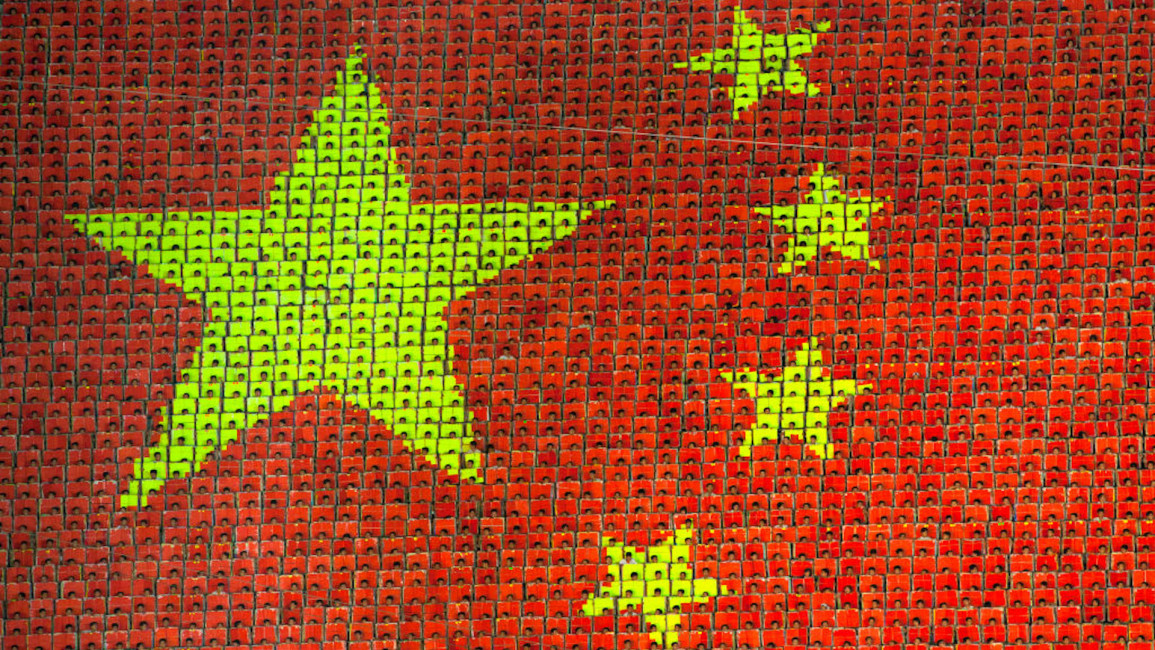China sanctions UK figures over Xinjiang as rift widens with West
China targeted sanctions at British lawmakers and lobby groups Friday, widening a chasm between Beijing and Western powers critical of alleged rights violations in Xinjiang.
The EU, UK, Canada and US sanctioned several members of Xinjiang's political and economic hierarchy this week in a coordinated action over allegations of widespread abuse in the northwestern region.
At least one million Uyghurs and people from other mostly Muslim groups have been held in camps there, according to rights groups, who accuse authorities of forcibly sterilising women and imposing forced labour.
Beijing insists Xinjiang is an "internal affair" and has gone into attack mode as Western opprobrium mounts, putting sanctions on individuals from the European Union and Britain who have taken up the Uyghur cause.
It has also fuelled a social media PR war against several Western brands operating inside China, which has seen calls for boycotts and celebrities drop endorsements.
On Friday China announced sanctions against nine UK individuals and four entities, saying they had "maliciously spread lies and disinformation" over Beijing's treatment of Uyghurs.
Twitter Post
|
Those sanctioned included Iain Duncan Smith, former leader of Britain's Conservative party, as well as other lawmakers chairman of the foreign affairs committee Tom Tugendhat.
Duncan Smith said on Twitter it is "our duty to call out" the Chinese government's "human rights abuse" in Hong Kong and the "genocide of the Uyghurs".
"Those of us who live free lives under the rule of law must speak for those who have no voice. If that brings the anger of China down on me, I'll wear that badge of honour," he said.
Beijing also aimed sanctions at four groups that have been vocal in driving rights in Xinjiang and Hong Kong onto Westminster's agenda, including Uyghur Tribunal and Essex Court Chambers whose barristers built a legal opinion that there is a case for "genocide" against the Chinese government over the treatment of the minority.
All of the sanctioned parties will be barred from mainland China, Hong Kong and Macau, while their property in the country will be frozen, and Chinese citizens and institutions will be banned from dealings with them.
"The United Kingdom (UK) imposed unilateral sanctions on relevant Chinese individuals and entities, citing the so-called human rights issues in Xinjiang," China's Ministry of Foreign Affairs said in a statement.
The move "severely undermines China-UK relations", it added, warning Britain "not go further down the wrong path".
Business of politics
The treatment of the Uyghurs in Xinjiang is an incendiary issue for Beijing.
China flatly denies any abuses, describing detention centres as work camps intended to uplift incomes and diffuse extremism in a region made restive by central control.
The reputations of several Western brands have been incinerated this week after old statements expressing concerns over the reports of forced labour in cotton-rich Xinjiang resurfaced on China's closely controlled social media.
Celebrities and tech firms waded in, pulling partnerships with brands from Nike and H&M to Adidas, Burberry and Calvin Klein, as the diplomatic rift swiftly made casualties of global firms doing business in China.
Nationalist tabloid Global Times said H&M, which counts China as its fourth-largest market, had been "suicidal" in its remarks.
As the fashion retailer evaporated from Chinese shopping apps, H&M China said Wednesday night it "does not represent any political position" and remained committed to long-term investment in China.
A week of vituperations from Beijing swept in the European Union, bringing into question a massive trade pact which is in the final stages before agreement.
The EU and China agreed on the pact in principle in December but it must be ratified by the bloc's 27 states and approved by its parliament, which is expected to vote on it next year.
France on Thursday warned it would take a firm stance on forced labour in the pact.
The Western move to box in China over Xinjiang has been orchestrated by US President Joe Biden, who has sought consensus against the perceived aggressions of Beijing.
In his first presidential press conference late Thursday, Biden said he was not "seeking confrontation".
But relations between the world's two leading economies and military powers have soured further since Biden entered office.
A debut face-to-face meeting between the two nations' top diplomats last week in Alaska quickly descended into mud-slinging.



